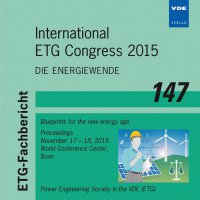Optimization of Hybrid Appliances in Future Households
Konferenz: International ETG Congress 2015 - Die Energiewende - Blueprints for the new energy age
17.11.2015 - 18.11.2015 in Bonn, Germany
Tagungsband: International ETG Congress 2015
Seiten: 6Sprache: EnglischTyp: PDF
Persönliche VDE-Mitglieder erhalten auf diesen Artikel 10% Rabatt
Autoren:
Mauser, Ingo; Schmeck, Hartmut (FZI - Research Center for Information Technology, Division ISPE, 76131 Karlsruhe, Germany,)
Schmeck, Hartmut (KIT - Karlsruhe Institute of Technology, Institute AIFB, 76131 Karlsruhe, Germany)
Schaumann, Uwe (E.G.O. Elektro-Gerätebau GmbH, Corporate Research, 75038 Oberderdingen, Germany)
Inhalt:
The transition from fossil energy carriers and nuclear power to renewable energies and distributed generation is a challenge for society. It includes all energy carriers, such as electricity and gas, and the flexibilization of energy consumption, given the fact that renewable energies are mostly intermittent and causing fluctuating generation. Optimization and flexibilization of future energy systems require energy management systems that optimize energy flows on all levels of the energy system and across all energy carriers autonomously. So far, flexibilization focuses mainly on electricity consumption and generation. This paper presents hybrid household appliances and an integrated optimization of all different energy carriers as an important possibility of using building for the flexibilization of energy consumption and electricity feed-in into the distribution grid. Bottom-up simulations of households with energy management systems that optimize energy generation and consumption with respect to all carriers show an increase of the flexibilization of energy consumption as well as an increase of the self-consumption and self-sufficiency that will help to enable the transition in the energy system.


